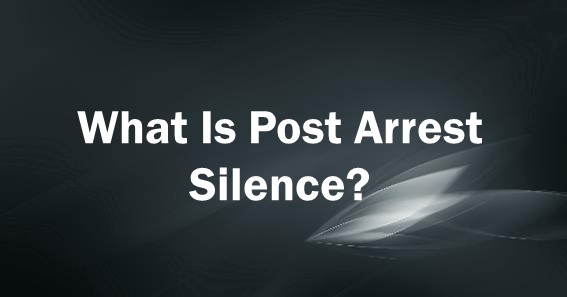Are you curious to know what is post arrest silence? You have come to the right place as I am going to tell you everything about post arrest silence in a very simple explanation. Without further discussion let’s begin to know what is post arrest silence?
What Is Post Arrest Silence?
Post-arrest silence refers to the concept that a defendant’s decision to remain silent after being arrested and read their Miranda rights cannot be used against them in court. This means that the prosecution cannot use a defendant’s silence as evidence of guilt.
The Fifth Amendment And Miranda Rights
The right to remain silent is protected under the Fifth Amendment of the United States Constitution. This means that a defendant cannot be compelled to testify against themselves in a criminal case. The Miranda rights, which are read to a defendant upon arrest, include the right to remain silent.
The purpose of the Miranda warning is to ensure that a defendant is aware of their rights and the potential consequences of speaking to law enforcement. If a defendant chooses to remain silent after being read their Miranda rights, their silence cannot be used against them in court.
The Use Of Post-Arrest Silence In Court
In the past, prosecutors have attempted to use a defendant’s post-arrest silence as evidence of guilt. For example, if a defendant remained silent when questioned about their involvement in a crime, the prosecution might argue that the silence suggested guilt.
However, the Supreme Court has ruled that using a defendant’s post-arrest silence as evidence of guilt violates their Fifth Amendment rights. In Salinas v. Texas (2013), the Court held that a defendant’s pre-Miranda silence could be used against them, but their post-Miranda silence could not.
This means that a defendant’s decision to remain silent after being read their Miranda rights cannot be used as evidence of guilt in court. However, if a defendant makes statements before being read their Miranda rights or after waiving their right to remain silent, those statements can be used as evidence in court.
Conclusion
Post-arrest silence is an important concept in criminal law. A defendant’s decision to remain silent after being read their Miranda rights cannot be used against them in court. Prosecutors cannot argue that a defendant’s silence suggests guilt. Instead, they must rely on other evidence to prove their case. Defendants should be aware of their right to remain silent and exercise that right if they choose to do so.
Let’s find some more interesting topics like these here askcorran
FAQ
What Supreme Court Case Is Post-Arrest Silence?
IMPEACHING A DEFENDANT’S TESTIMONY BY PROOF OF POST-ARREST SILENCE – DOYLE V OHIO. A REVIEW OF THE SUPREME COURT DECISION IN DOYLE V OHIO (1976) HELD THAT THE DUE PROCESS CLAUSE OF THE FOURTEENTH AMENDMENT PREVENTS THE USE OF A DEFENDANT’S POST-ARREST SILENCE TO IMPEACH HIS TESTIMONY.
Can Police Use Silence Against You?
In short, Yes. Unless you invoke your right to remain silent, your silence may be used against you. In the United States, the state can use a suspect’s silence against them in court if they do not affirmatively invoke their right to remain silent. According to the ruling in Berghuis v.
What Is Pre-Arrest Silence?
PRE-ARREST SILENCE. Such refusals to speak fall under the legal umbrella of “pre-arrest. silence,” because they involve a person suspected of committing a. criminal act who chooses not to answer questions, but who has not. yet been read his Miranda warnings.
Is Pre-Arrest Silence Evidence Of Guilt?
After Salinas’s pre-arrest, pre-Miranda silence can be used as evidence of guilt unless a criminal defendant expressly invokes their right to remain silent.
I Have Covered All The Following Queries And Topics In The Above Article
What Is Post Arrest Silence
What Is Post Arrest Silence
Can silence be a form of evidence
Can the prosecution use a criminal defendant’s post-arrest silence as evidence of guilt?







